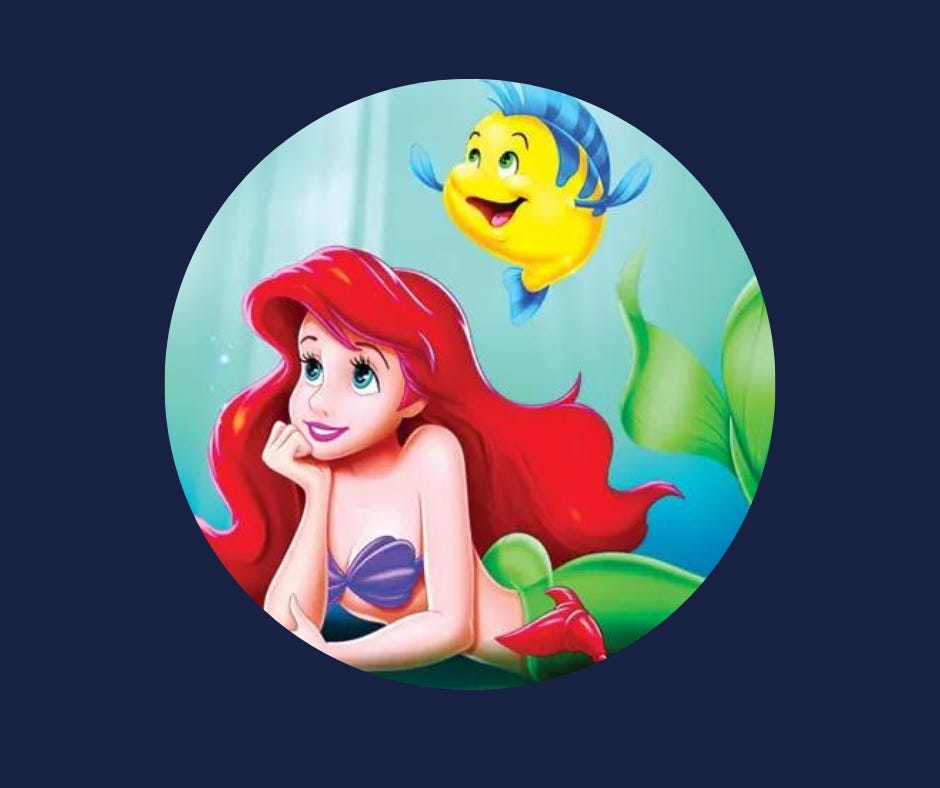Go Woke Go Broke or Right Flank Make Bank?
A journalist friend following the controversy at Disney and the Florida education law asked me if I thought conservative parents would stop watching Disney movies or drop their products.
My answer: Not in any meaningful way. Not yet.
My experience has been that human beings take the path of least resistance and gravitate to venues where they are strongest. This path means that it’s unlikely that parents will stop streaming The Little Mermaid in droves because Disney movies make their kids happy, independent of their parents’ politics. But these same parents may go into the voting booth in November and pull the lever for Republicans who cannot abide corporate woke-ery.
I make these observations clinically, not ideologically. Put differently; it’s not my job to advise clients based on my political feelings. I see no evidence that conservatives can reliably execute a consumer boycott as effectively as they can maneuver in political elections. At most, they can make slight inroads to “de-select” — gradually put a dent in — sales. But tangle with environmentalists, Black Lives Matter or the LGBTQ movement? Corporations will do whatever it takes to avert fights on these types of issues they know can create heartache in the marketplace and workplace.
My experience has been that progressive agendas dominate the culture, but conservatives earn their pay in political fights. Accordingly, each ideology is likely to remain in familiar territory that reliably pays dividends. To pull off a boycott, you need popular culture and the legacy media. Progressives have that organically. Conservatives don’t. Sure, the latter has Fox News and talk radio, but these venues don’t lend themselves to boycotts, especially since not even conservative media are thrilled about losing advertising revenue. So, conservatives turn to legislative fights, which is what happened in Georgia when Republicans nixed tax breaks for Delta Airlines in the wake of the company’s stance on voting laws and in Florida, where Republicans are promulgating legislation to peel back Disney’s tax benefits for their opposition to the so-called “Don’t Say Gay” bill.
Having spent the better part of four decades in corporate strategy meetings, I have little doubt that the overwhelming majority of consultants advising businesses on these issues are sympathetic to progressive causes. I have seen this lead to the misassumption that the consumer and political marketplace will always agree with the advice being given because everyone around the table thinks the same way. This has led companies to overestimate the dividends and underestimate the backlash they will get by wading too deep into a particular issue. I have never regretted advising clients to proceed very slowly on an issue-by-issue basis before committing themselves too deeply to any cause because there is no one-trick to walking through this minefield.
Indeed, while The Little Mermaid may still be swimming onto millions of screens, Disney’s stock is in free fall. There may be multiple reasons for this, but Wall Street is undoubtedly watching Florida closely. Gillette suffered blowback for a #MeToo advertisement addressing what’s been called “toxic masculinity,” which couldn’t have helped the pre-existing challenges they are facing in the male-dominated razor market. Then there are companies that thought they were doing the right thing by pulling out of Russia over the Ukraine war but found that some pundits still slammed them for not doing enough. Nothing is ever enough when your critics are deeply committed to mounting your head on their wall. Will it be acceptable for companies to boycott Russia over Ukraine but not boycott a country that goes to war in a region where the inhabitants look less like most Americans?
Along these lines, there will be an interesting thing to watch: It’s amazing how few people it takes to ignite a news-dominating phenomenon or terrify a company into taking an action that may not even represent what many employees or consumers are thinking. How will companies and institutions navigate this variable from now on? After the George Floyd tragedy in 2020, social and legacy media were ablaze with cries to “defund the police.” A few years later, it turned out that the cry came from a tiny percentage of extremely vocal people on Twitter. In reality, very few people of any political stripe wanted to defund the police as crime was reaching record levels, but the emotionally resonant maxim dominated the news for months.


